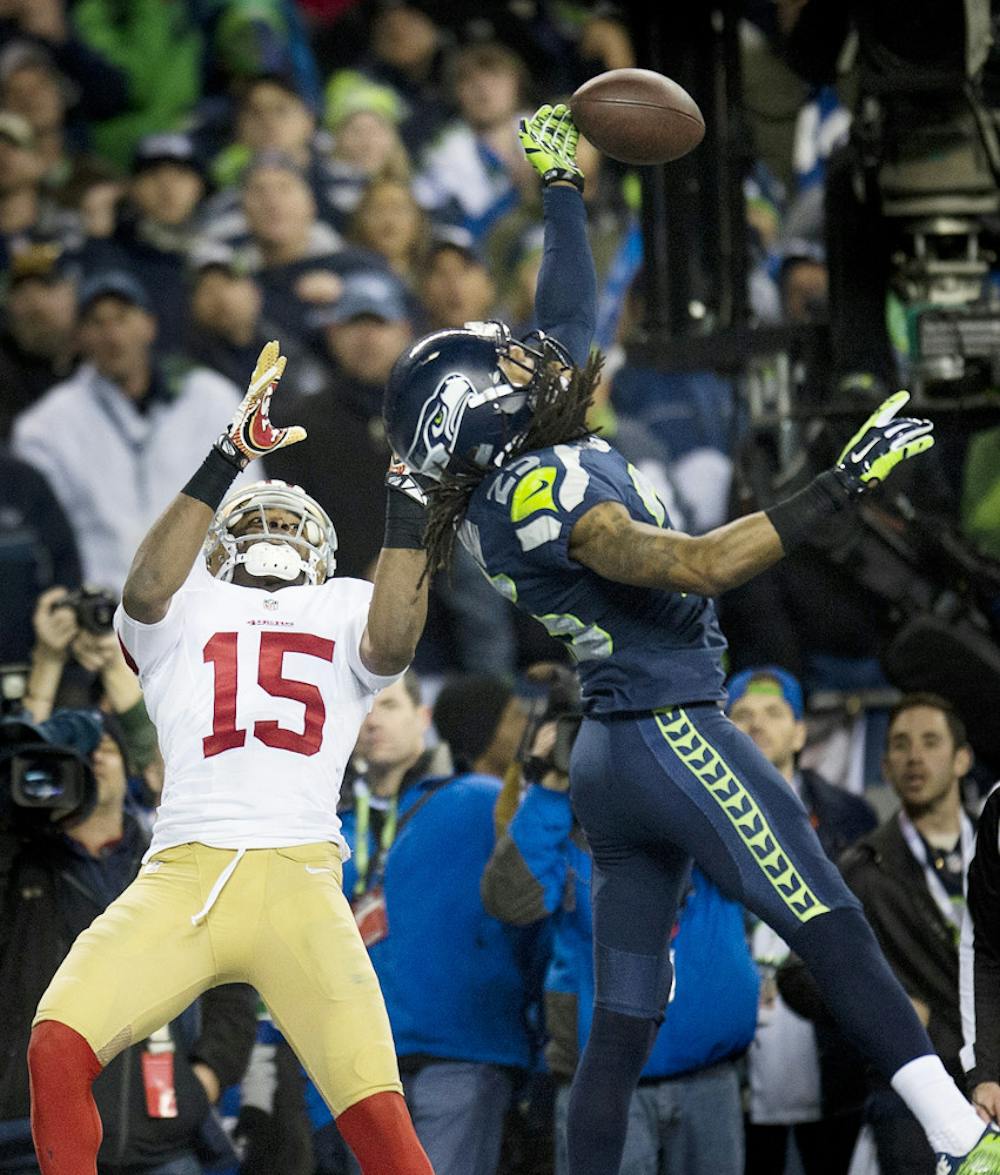By now, you’ve probably read about or listened to Seattle Seahawks cornerback Richard Sherman’s controversial postgame comments following his team’s 23-17 win in the NFC Championship over the San Francisco 49ers on Sunday night.
If not, how comfy is that rock you’ve been hiding under?
For those who don’t know, Sherman went on an epic rampage during his postgame interview with FOX sideline reporter Erin Andrews after the biggest play of his career — a deflection of a pass intended for 49ers receiver Michael Crabtree in the end zone that fell into the hands of Seattle linebacker Malcolm Smith to seal the game.
When Andrews asked Sherman after the game’s defining play, he went off the tracks.
Sherman labeled himself as “the best corner in the game” and rubbed a container’s worth of Morton Salt into Crabtree’s wounds, calling his nemesis a “sorry receiver.”
“Don’t you ever talk about me,” Sherman exclaimed, referring to Crabtree.
Then, Andrews followed up by asking: “Who was talking about you?”
And Sherman kept going.
“Crabtree,” Sherman said. “Don’t you open your mouth about the best, or I’m going to shut it for you real quick.”
Sherman then ended his interview by shouting “L.O.B.,” an acronym for the Seahawks defense’s nickname Legion of Boom.
Seconds following Sherman’s comments, social media unsurprisingly exploded, and plenty of hate was directed Sherman’s way.
In an instant, he became a villain — and Twitter became a Denver Broncos fan.
But I don’t get why people are vilifying Sherman. Although his postgame remarks were wild and somewhat uncivilized, they were incredibly refreshing.
How could you not love an athlete for expressing his raw emotion after possibly the biggest moment of his entire career?
In most postgame interviews, clichés and contrived messages such as “take it one game at a time” and “just played hard for my teammates” are go-tos for athletes. Even some athletes who accomplish outstanding achievements, like winning Super Bowls or NBA titles, fall back on these empty responses when the buzzer sounds and the microphones and recorders are held to their faces.
At least Sherman tried to spice it up Sunday. You have to respect him for at least doing that.
Unfortunately, many people now are going to jump on the We Hate Richard Sherman Bandwagon, and for a poor reason. The third-year corner out of Stanford has always been outspoken, and that quality has never adversely affected him or his team.
We’re talking about a guy who once told Skip Bayless on live television, “I’m better at life than you,” after the First Take host questioned Sherman’s claim that he’s the best player in the league at his position. (Sure, that’s mean, but he may have a point.)
At least Sherman has backed up his cocky demeanor with his play during the past few seasons. I’m all for fiery comments that won’t hurt team morale or chemistry in the long run. If his teammates don’t have a problem with them, I don’t.
Monday, Sherman apologized for the remarks and attacking Crabtree. But we all know somebody in his ear told him what to say.
Regardless, what happened in the heat of the moment will forever live on and represent Sherman’s natural emotions after his team’s win. That’s why I love it when a guy like Sherman says something eye-popping but not too explicit or inappropriate during a postgame interview.
You can’t criticize Sherman for being himself — especially when emotions are high after a big game.
As Sherman would say, “stop [complaining] and [just] adapt.”
Follow Landon Watnick on Twitter @LandonWatnick
Seattle cornerback Richard Sherman (25) hits the ball away from San Francisco receiver Michael Crabtree (15) during the NFC Championship game on Sunday in Seattle.






